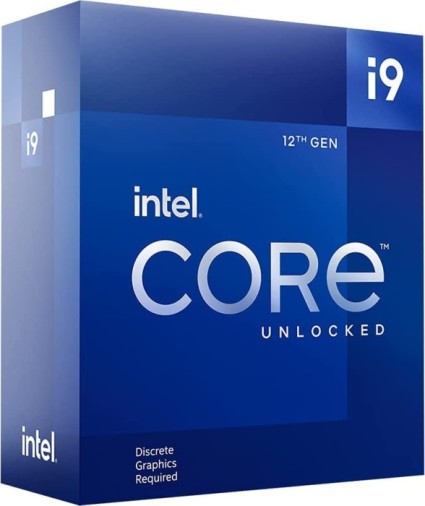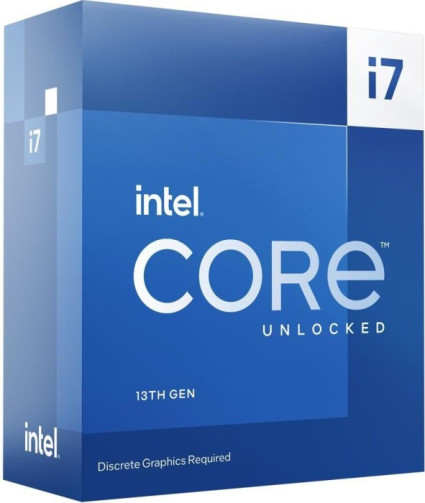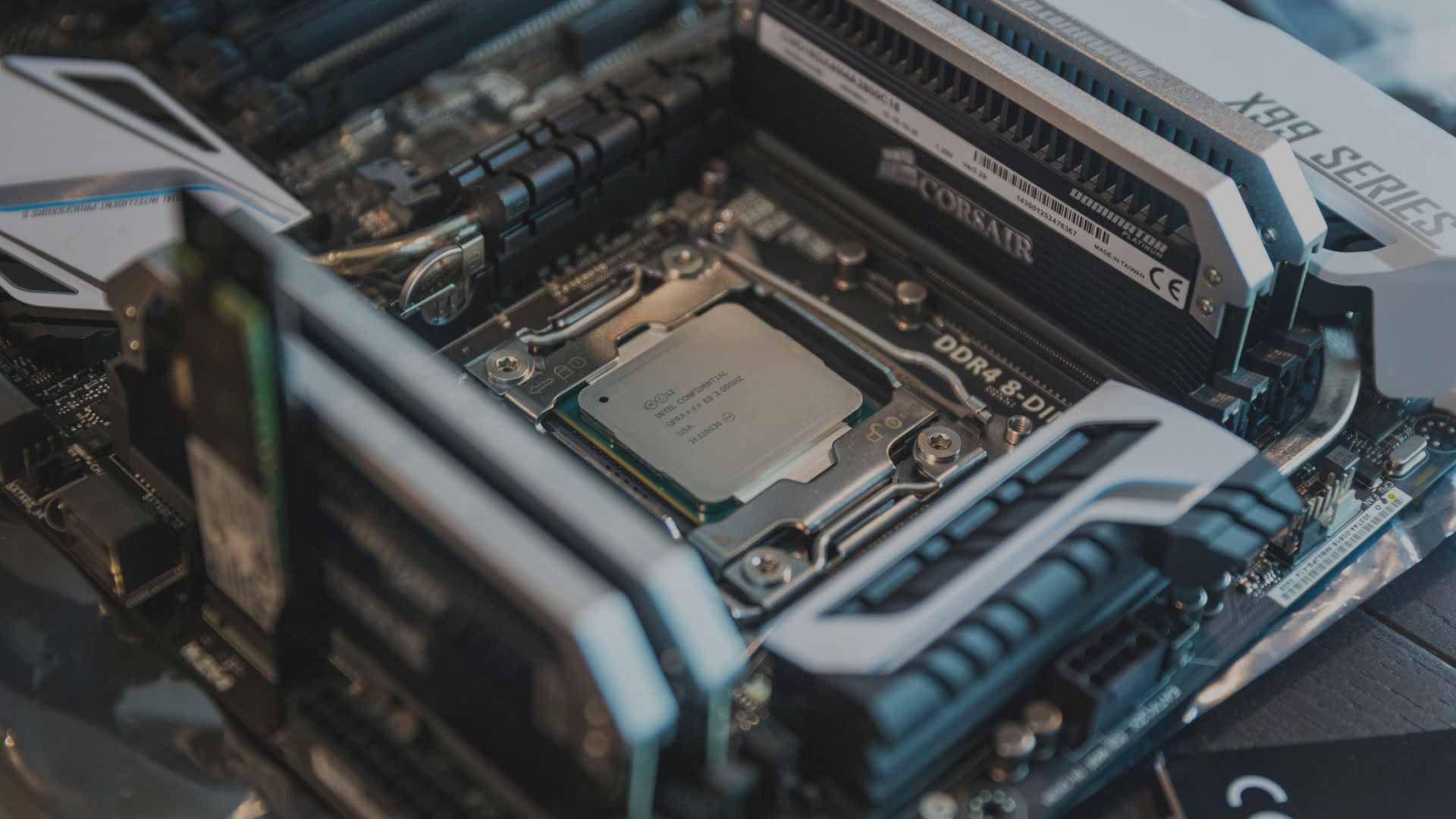
Intel Core i9-12900KF vs. Intel Core i7-13700KF
In diesem Vergleich von Intel Core i9-12900KF versus Intel Core i7-13700KF vergleichen wir die technischen Daten der beiden GPUs. Welche Grafikkarte ist schneller? Hier gibt es FPS & Benchmarks in Gaming und Anwendungen. Außerdem Daten zu Verbrauch, Effizienz (FPS pro Watt) und Preis-Leistung (FPS pro Euro).

Allgemeine Informationen
| Günstigster Preis |
|
|
| Serie | Intel Core i-12000 | Intel Core i-13000 |
| Chip-Architektur | Golden Cove (P-Core) + Gracemont (E-Core) | Raptor Cove (P-Core) + Gracemont (E-Core) |
| Codename | Alder Lake-S | Raptor Lake-S |
| Produktname | Intel Core i9-12900KF | Intel Core i7-13700KF |
Spezifikationen
Die Anzahl der Rechenkerne, die maximale Taktrate und die Größe des Cache können sich auf die Leistung in Spielen und Anwendungen auswirken. Mit 16 Kernen bietet der Intel Core i9-12900KF gleich viele Kerne wie der Intel Core i7-13700KF mit 16 Rechenkernen. Der maximale Takt liegt beim Intel Core i9-12900KF mit 5.20 GHz etwas niedriger als beim Intel Core i7-13700KF mit 5.40 GHz. Der Cache ist beim Intel Core i9-12900KF mit 14 MB L2-Cache + 30 MB L3-Cache zu 24 MB L2-Cache + 30 MB L3-Cache deutlich kleiner als beim Intel Core i7-13700KF.
| Kerne (Gesamt) | 16 | 16 |
| Anzahl P-Cores | 8C | 8C |
| Anzahl E-Cores | 8c | 8c |
| Basis-Takt | 3.20 GHz | 3.40 GHz |
| Takt P-Cores | 3.20 GHz | 3.40 GHz |
| Takt E-Cores | 2.40 GHz | 2.50 GHz |
| Turbo-Takt | 5.20 (Turbo Boost Max 3.0) GHz | 5.40 (Turbo Boost Max 3.0) GHz |
| Turbo P-Cores | 5.20 (Turbo Boost Max 3.0) GHz | 5.40 (Turbo Boost Max 3.0) GHz |
| Turbo E-Cores | 3.90 GHz | 4.20 GHz |
| Gesamter L2-Cache | 14 MB | 24 MB |
| Gesamter L3-Cache | 30 MB | 30 MB |
| Fertigung | Intel 7 | Intel 7 |
| Rechenleistung | - | - |
| Leistungsaufnahme (TDP) | 125W (Processor Base Power) 241W (Maximum Turbo Power) |
125W (Processor Base Power) 253W (Maximum Turbo Power) |
Mainboard-Kompatibilität
Sowohl der Intel Core i9-12900KF als auch der Intel Core i7-13700KF setzen auf den Sockel Intel 1700.
| Sockel | Intel 1700 | Intel 1700 |
| Chipsatz-Eignung | B660, B760, H610, H610E, H670, H770, Q670, Q670E, R680E, W680, Z690, Z790 | B660, B760, H610, H610E, H670, H770, Q670, Q670E, R680E, W680, Z690, Z790 |
| PCIe-3.0-Lanes | - | - |
| PCIe-4.0-Lanes | 4x | 4x |
| PCIe-5.0-Lanes | 16x | 16x |
RAM-Kompatibilität
Während Sie beim Intel Core i9-12900KF bis zu 128 GB vom Typ DDR4/DDR5 im Dual Channel verbauen können, unterstützt der Intel Core i7-13700KF bis zu 192 GB DDR4/DDR5 Arbeitsspeicher.
| Speicher-Controller | DDR4/DDR5 | DDR4/DDR5 |
| Anzahl Speicherkanäle | Dual Channel | Dual Channel |
| max. Speichermenge | 128 GB | 192 GB |
| ECC-Unterstützung | - | - |
Grafik
| iGPU | - | - |
| iGPU-Modell | - | - |
| iGPU-Takt | - | - |
| iGPU-Einheiten | - | - |
| iGPU-Rechenleistung | - | - |
| iGPU-Architektur | - | - |
| iGPU-Interface | - | - |
| iGPU-Funktionen | - | - |
Sonstiges
| Freier Multiplikator | ✓ | ✓ |
| Stepping | C0, Spec Code: SRL4J | B0, Spec Code: SRMB9 |
| Heatspreader-Kontaktmittel | Metall/verlötet | Metall/verlötet |
| Temparatur max. | 100°C (Tjunction) | 100°C (Tjunction) |
| Fernwartung | - | - |
| Einführung | 2021/Q4 (4.11.2021) | 2022/Q4 (20.10.2022) |
| Herstellergarantie | 3 Jahre bei Intel® Boxed-Prozessoren (Info DE/Info EN) | 5 Jahre bei Intel® Boxed-Prozessoren durch erweiterte Garantieunterstützung (Info EN) |
CPU-Funktionen
| AES-NI | ✓ | ✓ |
| AVX | ✓ | ✓ |
| AVX2 | ✓ | ✓ |
| Boot Guard | ✓ | ✓ |
| CET | ✓ | ✓ |
| DL Boost | ✓ | ✓ |
| EIST | ✓ | ✓ |
| GNA 3.0 | ✓ | ✓ |
| Idle States | ✓ | ✓ |
| Instruction Set | ✓ | ✓ |
| ISM | ✓ | ✓ |
| MBEC | ✓ | ✓ |
| Optane Memory Support | ✓ | - |
| OS Guard | ✓ | ✓ |
| Secure Key | ✓ | ✓ |
| Speed Shift | ✓ | ✓ |
| SSE4.1 | ✓ | ✓ |
| SSE4.2 | ✓ | ✓ |
| Thermal Monitoring | ✓ | ✓ |
| VMD | ✓ | ✓ |
| VT-d | ✓ | ✓ |
| VT-x | ✓ | ✓ |
| VT-x EPT | ✓ | ✓ |
| XD Bit | ✓ | ✓ |
Spiele
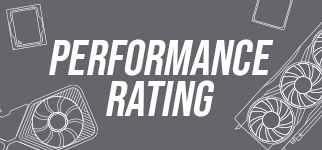
- Intel Core i9-12900KFAVG100.00 %1%100.00 %
- Intel Core i7-13700KFAVG116.85 %1%114.11 %

- Intel Core i7-13700KFAVG280.9 FPS1%199.4 FPS
- Intel Core i9-12900KFAVG234.6 FPS1%176.2 FPS
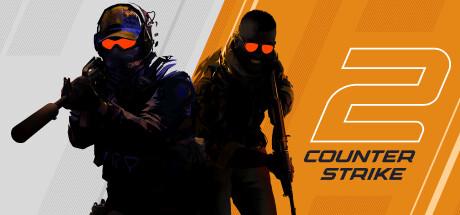
- Intel Core i7-13700KFAVG669.3 FPS1%314.2 FPS
- Intel Core i9-12900KFAVG555.1 FPS1%283.2 FPS

- Intel Core i7-13700KFAVG160.1 FPS1%112.6 FPS
- Intel Core i9-12900KFAVG145.8 FPS1%99.7 FPS

- Intel Core i7-13700KFAVG210.9 FPS1%156.9 FPS
- Intel Core i9-12900KFAVG191.8 FPS1%138.2 FPS

- Intel Core i7-13700KFAVG176.4 FPS1%125 FPS
- Intel Core i9-12900KFAVG139.5 FPS1%101.4 FPS

- Intel Core i7-13700KFAVG268 FPS1%169.9 FPS
- Intel Core i9-12900KFAVG226.3 FPS1%143.5 FPS

- Intel Core i7-13700KFAVG94.8 FPS1%71.4 FPS
- Intel Core i9-12900KFAVG79.3 FPS1%62 FPS

- Intel Core i7-13700KFAVG297.9 FPS1%170.7 FPS
- Intel Core i9-12900KFAVG270 FPS1%161.9 FPS

- Intel Core i9-12900KFAVG0.75 FPSIntel Core i7-13700KFAVG0.78 FPS

- Intel Core i9-12900KFAVG2.32 FPSIntel Core i7-13700KFAVG2.21 FPS
Produktivität
Produktivität

- Intel Core i9-12900KFAVG100.00 %Intel Core i7-13700KFAVG110.25 %

- Intel Core i9-12900KFPKT123370 PunkteIntel Core i7-13700KFPKT149721 Punkte

- Intel Core i9-12900KFPKT1443 PunkteIntel Core i7-13700KFPKT1467 Punkte

- Intel Core i9-12900KFPKT910 PunkteIntel Core i7-13700KFPKT992 Punkte
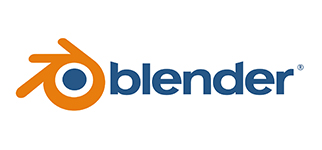
- Intel Core i9-12900KFSEK236 SekundenIntel Core i7-13700KFSEK206 Sekunden

- Intel Core i9-12900KFPKT1366 PunkteIntel Core i7-13700KFPKT1567 Punkte

- Intel Core i9-12900KFPKT2987 PunkteIntel Core i7-13700KFPKT3223 Punkte

- Intel Core i9-12900KFPKT16551 PunkteIntel Core i7-13700KFPKT18843 Punkte

- Intel Core i9-12900KFSEK62 SekundenIntel Core i7-13700KFSEK56 Sekunden
